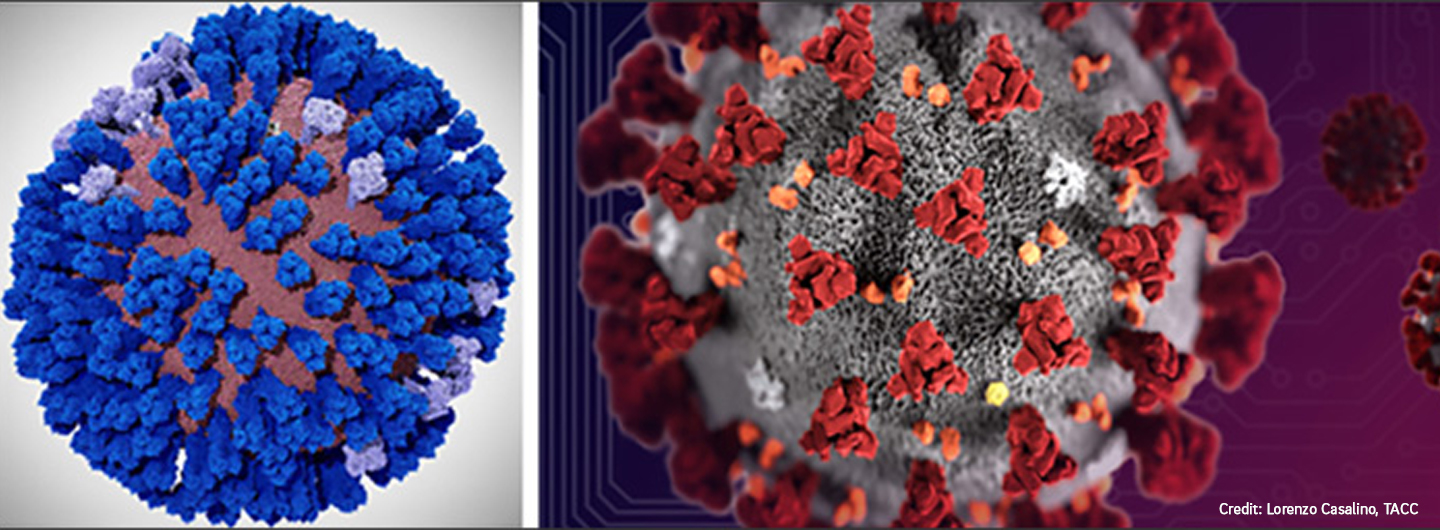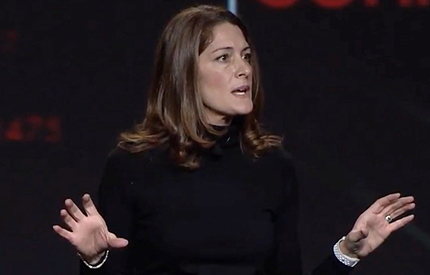UC San Diego’s Rommie Amaro Wins Support for COVID-19 Research
Research Corporation for Science Advancement Initiative funds promising proposals
May 29, 2020 | By Cynthia Dillon
The Research Corporation for Science Advancement (RCSA) awarded seven teams of scientists $700,000 for cutting-edge research through its COVID-19 Initiative: Detecting and Mitigating Epidemics. Among the scientists selected is UC San Diego’s Professor of Chemistry and Biochemistry Rommie Amaro.
“With the funding of these projects, RCSA is seeking to bring perspectives and methods from the physical sciences to bear on the detection and treatment of this and future pandemics, and to create opportunities for physical scientists to contribute to the global effort to combat the coronavirus,” said RCSA President & CEO Daniel Linzer.
For each proposal, team members were awarded $55,000 apiece to support the work. Amaro, director of the National Biomedical Computation Resource and co-director of the Drug Design Data Resource, is on a team whose proposed project is Pan-Covid-19 MultiValent Binders (MVBs) to Block Virus Entry. Her team members include Ronit Freeman, associate professor at the University of North Carolina at Chapel Hill, who specializes in biomaterials, and Carlos Simmerling, a chemistry professor at Stony Brook University.
“Our team is aiming to develop small molecules (called multivalent binders) that are capable of recognizing different structural states of the coronavirus spike protein, the main viral component that ‘unlocks’ entry to host cells,” said Amaro. “This seed grant will provide our team critical early support to develop computational models of different spike structures along the infection pathway and then develop multivalent binders that will target these new conformations. Our work will give new insights for spike dynamics and provide new compounds that could block virus-host cell fusion or select for different structural states of the spike protein.”
In addition to the Amaro team proposal, other funded projects include Glycomimetics for Inhibiting SARS-CoV-2 Entry, Modulating Ribosomal Frameshifts to Interfere with Viral Protein Translation, Targeting the SARS-CoV-2 Frameshift Site Pseudoknot and more.
The RCSA initiative began April 22 with a series of online meetings attended by 110 Cottrell Scholars, Scialog Fellows and Scialog Facilitators interested in using their skills and knowledge to respond to the global crisis resulting from the COVID-19 pandemic.
After an introduction to the virology of SARS-CoV-2 by two Northwestern University professors from the Department of Molecular Biosciences, Robert Lamb and Curt Horvath, participants met in small breakout groups to explore areas of opportunity for research and collaboration. Interested teams wrote their first proposals that week.
Expedited proposal submission and review processes enabled RCSA to make these awards less than five weeks after the initiative’s first virtual meeting.
Participants said they appreciated the opportunity to explore ways their research might be able to contribute to fighting the pandemic, and to make new connections with other scientists.
“With the postponement of our in-person conferences this spring, we had to get creative and find ways of deploying our resources to support work that might mitigate the current crisis or future ones that may follow,” said Program Director Andrew Feig, who headed the initiative. “We learned a lot about convening virtual meetings and are putting those ideas to use planning other ways to bring our communities of scientists together.”


